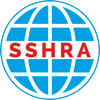
Abdul-Kareem M. Jaradat
Department of Counseling & Educational Psychology, Yarmouk University, Jordan
This study examined the effectiveness of cognitive-behavioral therapy (CBT) and study skills training (SST) in reducing test anxiety and improving academic performance. Eighty-one high test-anxious male students in the tenth grade were randomly assigned to three groups: CBT, SST and waiting-list control (WLC). CBT aimed to help participants become aware of the anxiety-producing self-statements they emitted both before and during exams, and to train them to develop positive self-statements that would facilitate task attending; whereas SST aimed to teach participants the skills necessary for effective learning, namely SQ3R method of studying, techniques of time management, note-taking methods, test preparation techniques, and test-taking techniques. All participants receiving treatment met for a total of six 50-minute treatment sessions spanning over six weeks. The data were analyzed using one-way ANOVA and one-way MANOVA. The results indicated that both treatment groups made significant improvements from pretest to posttest in test-anxiety when compared to the WLC group. However, only the CBT group was superior to the WLC group in improving academic performance. Overall, the results were interpreted as giving support to the interference model of the debilitating effect of anxiety on performance.
Keywords
Cognitive Behavioral Therapy, Study Skills Training, Test-Anxiety, Academic Achievement
Full Article is available at https://dx.doi.org/10.20319/pijss.2019.52.408418





